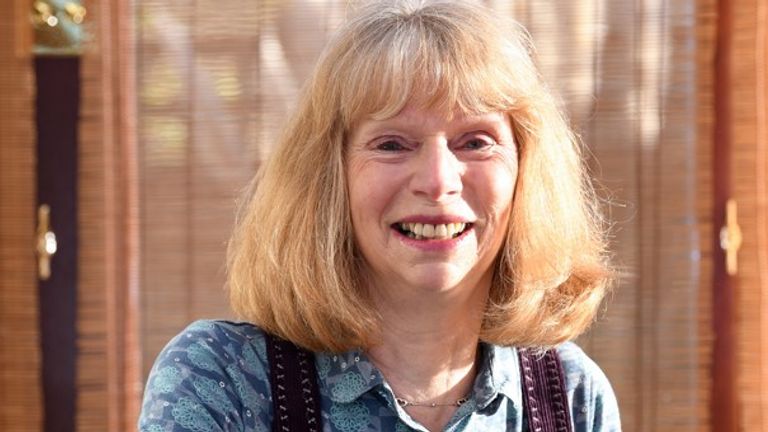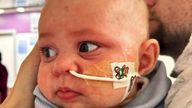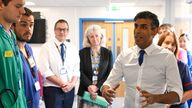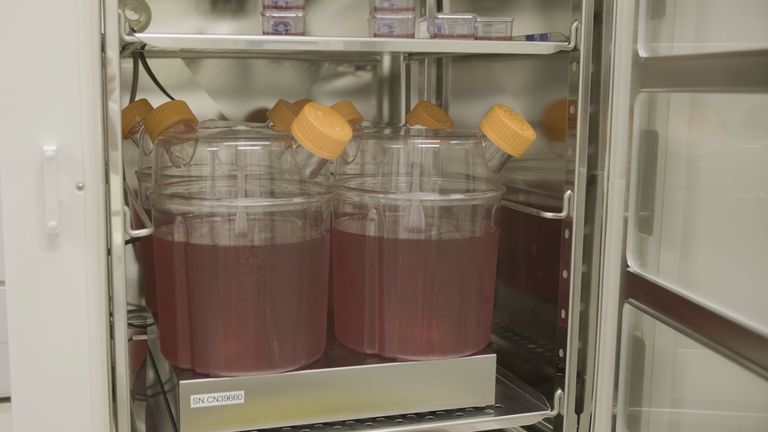Woman has breakthrough transfusion of lab-grown red blood cells
Scientists running the trial believe that lab-grown blood cells will survive for longer after a transfusion because they are 'younger' than those taken from a donor, which are of different ages.
Wednesday 15 March 2023 12:35, UK
A woman who was one of the first in the world to be given red blood cells that were grown in a lab has said "there is nothing to fear".
Yvonne Smith, 69, from Bury St Edmunds in Suffolk was given an injection of the manufactured cells as part of an NHS trial.
The Restore study could pave the way for supplies being made to order for people with blood disorders such as sickle cell and those with rare blood types, where finding matching donors can be a challenge.
"I would encourage anybody to do it," Yvonne said.
"There's nothing to fear. You are just getting a little bit of blood and it's going to help other people."
Yvonne received two injections of up to 10ml of red blood cells.
One injection contained cells that were isolated in the normal way from the donated blood.
The other contained cells that were grown from blood stem cells taken from the same donor.
The cells were labelled with a tracer element so they could be tracked in Yvonne's body.
Scientists running the trial at NHS Blood and Transplant (NHSBT) believe that lab-grown blood cells will survive for longer after a transfusion because they are 'younger' than those taken from a donor, which are of different ages.
Read more:
Teachers, junior doctors and Tube drivers stage mass walkout on budget day
NHS weight loss jab already having supply issues
Cedric Ghevaert, professor in transfusion medicine at the University of Cambridge and one of the study leaders, said: "This clinical trial is ground-breaking because it is the first time we are producing red cells in the laboratory in such a way we can compare how they behave after transfusion compared to standard donated red cells.
"We are immensely grateful to our trial participants. Without them, this clinical trial would never see the light of day."
Be the first to get Breaking News
Install the Sky News app for free


NHSBT said blood donors would still be needed in the future.
Manufactured cells would only be used for a very small number of patients with very complex transfusions, at least for the foreseeable future.
If you are an NHS worker and would like to share your experiences with us anonymously, please email NHSstories@sky.uk





